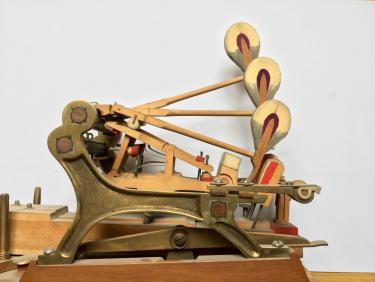Faculty of Philosophy Musicology
The musicology programme deals with music in all its theoretical and practical forms and contexts. The main focus of Heidelberg University’s Department of Musicology is the scientific study of European music history from antiquity until today.
Teaching at Heidelberg University focuses on historical musicology and popular music research. Occasionally, systematically and ethnologically aligned lectures are offered as well. The B. A. course of studies covers the entirety of European musical history, including, among other things, musical syntax and analysis, history of notation and composition, instrument studies, and interpretation history, history of genres and institutions, as well as aesthetics and reception. A tradition that reaches back all the way to the department’s founding years can be found in research of older musical history. The M.A. course of studies puts specialisation in the areas of historical musicology named above, along with history, analysis and aesthetics, technologies, media, and market mechanisms, as social, cultural, and political practices of popular music at the centre of teaching.

Special Features and Characteristics
The broad spectrum of musicology topics from all periods of music history, including modern and contemporary music, is regularly complemented by professional seminars, changing performance and exhibition events as well as additional courses from a variety of specialised areas.
Research
- Music, confession and liturgy
- History of musical reception and genres
- Musical Romanticism and forms of nationalism
- The notion of creation and self-reflection in music
- Eastern European music with a focus on Russia
Career Options
Graduates can be employed, among other places, in the following areas:
Research and teaching
- Professorship or working as a lecturer (college or university)
- Scientific work (college, university, or university-external research institution)
Dramaturgy
- Concert dramaturgy
- Opera and theatre dramaturgy
- Festival dramaturgy
- Dramaturgy in radio, film, or TV
Journalism and editorial work
- Press
- Radio
- Publishing
- Label
Culture management
- Public service (e.g., cultural office, town concert hall, foundation)
- Private economy (festival, ensemble management, agency, etc.)
Popular musicology
- Record companies, streaming services
- Booking and artist agencies, music management
Royalty Collection Services civil servants’ career
- Library
- Archive
- Diplomatic service
- Museum
- Auction house
Insights

I study Musicology and German studies because I am in constant contact with music and enjoy working creatively and independently. I would love to work as a dramaturge in a theatre one day.
Alicia Kern, 22, Musicology, 5th semester Bachelor





